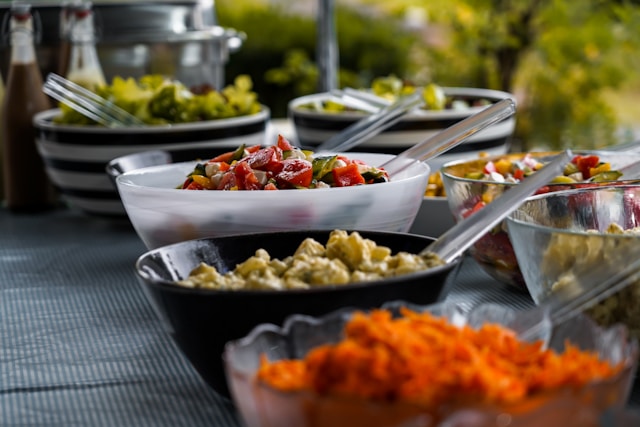In today’s diverse culinary landscape, accommodating dietary restrictions has become an essential skill for chefs and hosts alike. Whether due to health concerns, ethical beliefs, or personal preferences, dietary restrictions are increasingly common and require careful consideration to ensure all guests feel welcome and well-fed. Fortunately, with a bit of creativity and flexibility, crafting delicious menus that cater to all dietary needs is not only possible but can also lead to exciting culinary discoveries and memorable dining experiences.
One of the most common dietary restrictions is gluten intolerance or celiac disease, which requires avoiding gluten-containing grains such as wheat, barley, and rye. Fortunately, there are plenty of gluten-free alternatives available, from quinoa and rice to chickpea and almond flour, allowing chefs to create a wide variety of dishes without sacrificing taste or texture. By offering gluten-free options alongside traditional dishes, hosts can ensure that all guests can enjoy a delicious meal without worrying about gluten-related issues.
Another dietary restriction that is gaining popularity is veganism, which eschews all animal products, including meat, dairy, and eggs. While catering to vegan guests may seem daunting at first, there are countless plant-based ingredients and recipes available that are both delicious and nutritious. From hearty vegetable stews and grain bowls to creamy dairy-free desserts and plant-based cheeses, the options for vegan-friendly dishes are endless. By embracing plant-based cooking techniques and ingredients, chefs can create vibrant and flavorful menus that appeal to vegans and non-vegans alike.
Other dietary restrictions to consider include food allergies (such as nuts, shellfish, or soy), lactose intolerance, and religious dietary laws (such as kosher or halal). While these restrictions may present additional challenges, they also offer opportunities for creativity and innovation in the kitchen. By carefully sourcing ingredients, communicating with guests about their dietary needs, and offering alternative options, hosts can ensure that everyone can enjoy a delicious and satisfying meal without compromising their health or beliefs.

In addition to accommodating specific dietary restrictions, it’s also important to consider dietary preferences and lifestyle choices when planning menus. Offering a variety of options, from meat and seafood to vegetarian and vegan dishes, ensures that guests with different tastes and preferences can find something they love. Additionally, providing clear labeling and descriptions of dishes can help guests make informed choices about what to eat, alleviating any concerns or confusion about dietary restrictions.
In conclusion, navigating dietary restrictions requires creativity, flexibility, and empathy. By embracing the challenge of accommodating diverse dietary needs and preferences, hosts and chefs can create inclusive and memorable dining experiences that bring people together around the table. Whether it’s a wedding, corporate event, or family gathering, crafting delicious menus for all guests ensures that everyone feels welcome, respected, and well-fed. So, why not embrace the opportunity to showcase your culinary skills and hospitality by crafting inclusive menus that cater to all?


